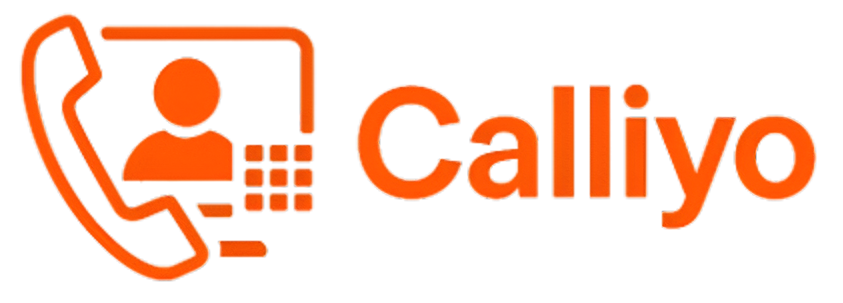In the modern BPO and customer service industry, optimizing communication strategies is key to improving customer engagement and lead conversion. One of the most effective methods for gaining traction is SIM-based calling for the outbound telecalling process. This technology uses mobile SIM cards to make outbound calls, offering greater call connectivity, local number recognition, and higher pickup rates compared to traditional VoIP or cloud-based systems. Businesses using SIM-based telecalling solutions benefit from enhanced call quality, increased agent productivity, and improved customer trust. By integrating SIM-based calling systems into the outbound telecalling process, companies can streamline operations, reduce costs, and achieve better call success rates.
SIM-based calling for the outbound Telecalling process
SIM-based calling for outbound telecalling offers a range of advantages for businesses looking to streamline their outbound sales and marketing efforts. Here’s a comprehensive overview of how SIM-based calling can transform the outbound telecalling process:
- Enhanced Scalability and Flexibility: SIM-based calling systems provide businesses with the ability to quickly and easily scale their outbound calling operations to meet changing demands. By adding or removing SIM cards as needed, businesses can effectively manage fluctuating call volumes and adapt to seasonal or campaign-driven spikes in activity. This flexibility allows organizations to optimize their calling resources and ensure seamless outreach without any infrastructure limitations.
- Cost-Effectiveness and Predictable Expenses: SIM-based calling eliminates the need for expensive upfront investments in hardware, software, and maintenance associated with traditional on-premise call center solutions. Instead, businesses pay a predictable per-minute usage fee for the SIM cards and call services they consume. This pay-as-you-go model provides transparency in expenses and allows businesses to accurately forecast their outbound calling costs.
- Global Reach and Local Presence: SIM-based calling systems enable businesses to make and receive calls from anywhere in the world. This global reach empowers organizations to expand their outbound sales and marketing efforts beyond geographical boundaries and connect with prospects in new markets. Additionally, SIM-based calling allows businesses to use local phone numbers when calling in specific regions, enhancing caller trust and increasing the likelihood of successful connections.
- Improved Call Quality and Reliability: SIM-based calling utilizes cellular networks to deliver high-quality voice calls with minimal latency and interruptions. This ensures that outbound calls are clear, consistent, and professional, contributing to a positive customer experience. Additionally, SIM-based calling systems offer redundancy and failover mechanisms, ensuring that outbound calling remains uninterrupted even in the event of network disruptions.
- Integration with CRM and Marketing Automation: SIM-based calling systems can be seamlessly integrated with existing CRM (Customer Relationship Management) and marketing automation platforms. This integration allows businesses to streamline their outbound calling workflows, automate call routing, and track call performance metrics. By leveraging data from CRM and marketing automation systems, outbound callers can have access to relevant customer information, enabling personalized and targeted conversations.
- Enhanced Productivity and Sales Conversion: SIM-based calling systems can significantly improve the productivity of outbound telemarketing teams. Features like predictive dialing, auto-dialing, and call recording can automate repetitive tasks and free up agents to focus on engaging with prospects and closing deals. Additionally, real-time call analytics and reporting provide valuable insights into call performance, enabling businesses to identify areas for improvement and optimize their outbound calling strategies.
- Compliance with Regulations and Data Privacy: SIM-based calling systems adhere to industry regulations and data privacy standards, ensuring that all outbound communications are compliant with regional and international laws. This includes obtaining explicit consent from prospects for marketing calls, maintaining proper call logs, and safeguarding sensitive customer data.
- Increased Team Morale and Motivation: SIM-based calling systems can contribute to a more positive and motivated work environment for outbound telemarketing teams. The ability to work remotely, access real-time call performance data, and receive continuous feedback can empower agents and foster a sense of accomplishment. This positive work environment can lead to improved agent retention and higher overall team productivity.
In conclusion, SIM-based calling has emerged as a powerful tool for transforming outbound telecalling processes. With its scalability, cost-effectiveness, global reach, enhanced call quality, and integration capabilities, SIM-based calling empowers businesses to reach wider audiences, engage prospects more effectively, and achieve their sales and marketing goals.
Frequently Asked Questions (FAQs)
-
What is SIM-based calling in outbound telecalling?
SIM-based calling refers to using physical mobile SIM cards to make outbound calls instead of VoIP or landline systems. It enables telecallers to use local numbers for better call connectivity and pickup rates.
-
How does SIM-based calling benefit outbound telecalling operations?
It improves call connectivity, enhances trust with local caller IDs, reduces call drops, and avoids issues with DND/VoIP blocking. It’s also cost-effective and easy to scale.
-
Is SIM-based calling better than VoIP for telecalling?
Yes, especially in regions where internet stability is poor or VoIP calls are blocked. SIM-based calling offers better voice clarity and higher answer rates due to local number recognition.
